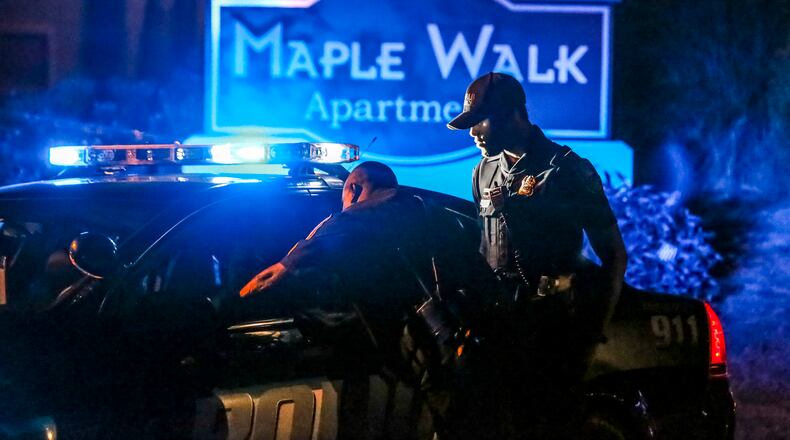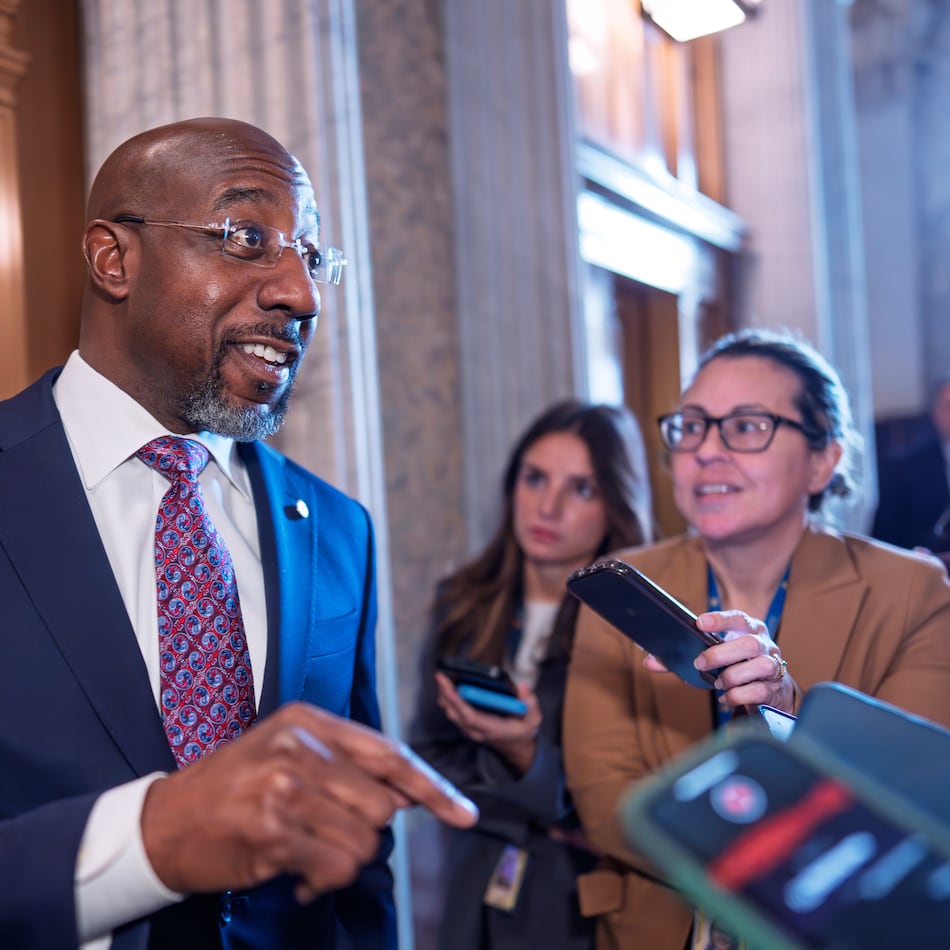Over a six-year period, DeKalb County Police Department officers shot 25 black people and one white person, the highest racial disparity found among the 50 largest departments from across the nation examined by the current affairs organization VICE News.
Some agencies, including Atlanta Police, didn’t provide the races of the people shot. But data obtained by The Atlanta Journal-Constitution shows DeKalb police fatally shot more black people than Atlanta officers.
Of the 26 people shot in DeKalb since 2010, 16 black people died, along with the one white person. Officers with the Atlanta Police Department, which is the only other local department among the nation’s 50 largest, fatally wounded 11 black people and three white people.
All of the shootings in DeKalb, a majority-black county that has a majority-black force, were examined by a grand jury and only one wasn’t deemed justified, a DeKalb police spokesman pointed out. Even though it was concluded nearly all the officers used the correct amount of force, he said, the department continues to train police on how they can avoid such a confrontation when at all possible.
Of the officers who make up the department, 58 percent are black, 37 percent white, DeKalb police told the AJC. The agency’s makeup mirrors the population, with the U.S. Census estimating in 2016 that DeKalb, a county of more than 700,000, was 55 percent black, 36 percent white. Because some of the county’s mostly-white cities are served by city departments, the population DeKalb police serves is even more than 55 percent black, though firm numbers are difficult to come by.
VICE's story, which published this week, has a national focus and only mentions DeKalb once, but the data it got from the department offers more insight.
For instance, most of the cops who shot the 25 black residents were black, not white. It was roughly 2-to-1. The officer who shot the white person was black.
“There’s a lot of demographics at play,” Russell Covey, Georgia State University law professor, told the AJC. “The racial identity of the shooters themselves suggests there’s more going on here than simple racism.”
RELATED: Over the line: A year-long examination of police shootings in Georgia
RELATED: Cops: DeKalb teen admits killing girlfriend, 16, but offers an excuse
RELATED: In Fulton and DeKalb, dozens of murder suspects out on bond
RELATED: DeKalb roofer sues for $2.5 million — over a bad Google review
Another factor could be the higher police presence in impoverished areas, several who analyze police shootings said.
L. Chris Stewart, an attorney who’s represented victims’ families in many high profile cases, sees more people shot by officers in such areas, which are often largely black. More police presence means more interactions with black people.
Growing up in south Atlanta, Stewart, who is black, said his apprehensions about interactions with police weren’t based on the race of the cop.
“A lot of people get caught up too much in the color of the officer, thinking if it’s a white officer, he’s purposely out looking for a black person to kill,” he said. “The biggest problem is not the color of the officer, it’s the officers who are obsessed with power.”
Associate GSU law professor Nirej Sekhon also found more shootings in poor areas when he studied the city of Chicago for an expansive paper.
He found something else that could also apply to DeKalb police: the percentage of white and black officers involved in shootings tended to be reflective of the percentage of white and black cops on the force. In other words, if most of DeKalb’s officers are black, it stands to reason that black officers do most of the shooting.
“I think race plays a role at the individual level and the institutional level,” Sekhon said. “(But) I think the role of race may be more subtle and less sensational.”
His GSU colleague, Covey, pointed out that racial bias against black people can be held by people of all races. “It’s a product of our cultural influences,” he said.
In DeKalb, ex-officer Robert Olsen was the only one to be found unjustified by the grand jury in recent years. Olsen, who is white, is charged with murder in the death of unarmed black military veteran Anthony Hill.
DeKalb police spokesman Lt. Lonzy Robertson also said the agency was one of the first in Georgia to join a state and nationwide use-of-force database.
“We have given great effort to use data and scientific evidence to aid in tracking and reducing use-of-force incidents each year,” Robertson said in an email. “The department will continue to be vigilant in ensuring that good training and data collection are utilized to improve public safety.”
Data specialist Jennifer Peebles contributed reporting.
Know what's really going on with crime and public safety in your metro Atlanta community, including breaking news, trial coverage, trends and the latest on unsolved cases. Sign up for the AJC's crime and safety newsletter delivered weekly to your inbox.
-
Like DeKalb County News Now on Facebook | Follow on Twitter
In other news:
About the Author
Keep Reading
The Latest
Featured



